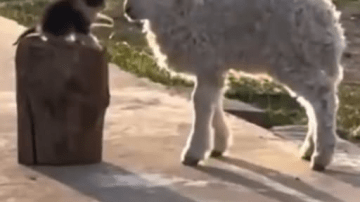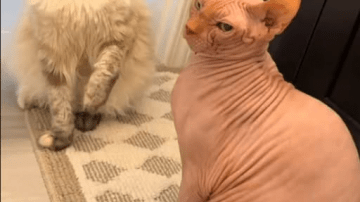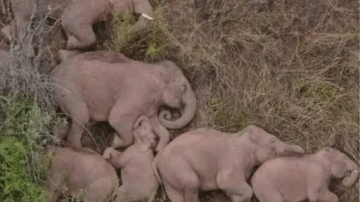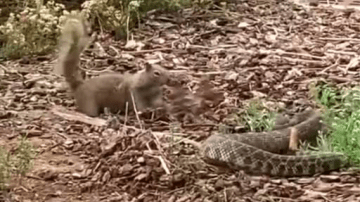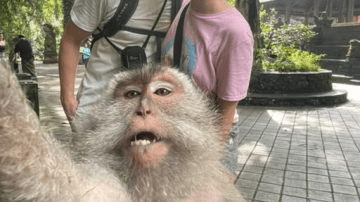Sometimes, compassion doesn’t shout. It doesn’t come wrapped in ceremony or fame. Sometimes, it’s just a man in a crowded market, reaching into his pocket for a few crumpled bills, and choosing mercy over indifference.
That man is Arron Culling, an ordinary New Zealander whose quiet choices ended up inspiring millions across the globe — and giving freedom to some of Earth’s oldest living creatures.

A Heartbreaking Discovery
Arron was working in Papua New Guinea, a country surrounded by turquoise waters and coral reefs teeming with life. But amid the beauty, he stumbled upon a sight that stopped him cold.
In a busy local market, where the air was thick with the scent of salt and smoke, rows of sea turtles were tied, stacked, and waiting — their flippers bound, their ancient eyes heavy with exhaustion. They were being sold for meat, part of a tradition that had gone on for generations.
To the locals, it was business as usual. To Arron, it was unbearable.
“I just stood there for a while,” he would later recall. “They looked so helpless — these amazing creatures that have survived everything the planet’s thrown at them for millions of years. And here they were, waiting to die on a wooden table.”
He could have walked away. Most people did. But something in him refused to accept it.
The First Rescue
Arron didn’t have a plan that day. What he had was empathy — and about fifty dollars in his wallet. He approached the vendor, pointed to two large green sea turtles, and paid for them outright.
Instead of taking them home for food, as expected, he loaded them carefully into the back of his truck. The drive was short — just a few kilometers to the nearest beach — but it changed everything.
When he reached the shore, he and a co-worker carried the turtles down to the water’s edge. The sand was warm beneath their feet, and the sea shimmered under the mid-morning sun. Arron placed the turtles gently on the ground.
For a moment, they hesitated. Then, as if sensing freedom, they began to crawl — slow at first, then faster, until the waves pulled them in and they vanished beneath the blue.
He stood there watching, speechless.
“It felt right,” he said simply. “Like setting something back where it belongs.”

One Small Act Becomes a Mission
Most people would have stopped there. But Arron didn’t. Over the following months, he returned to the markets again and again. Each time, he bought turtles — sometimes one, sometimes two — and drove them to the sea.
It became a quiet ritual. There were no cameras, no announcements, no sponsors. Just a man, a truck, and a promise to keep doing what he could.
Then, one day, he decided to share a photo.
On his Facebook page, he posted an image of two turtles sitting in the back of his truck, their shells catching the sunlight. The caption read:
“Found these little guys at the local market. Bought them for $50, drove five kilometers up the road, and let them go.”
That post changed everything.
The Story That Touched the World
Within hours, the post began spreading across social media. By the end of the week, it had been shared thousands of times. News outlets picked it up. People all over the world were talking about the man who bought turtles not to eat — but to set them free.
The photos were simple — no filters, no fancy captions. Yet, they carried a quiet power. They reminded people that goodness doesn’t need grandeur. That even in a world full of noise and division, one small act of kindness can ripple across oceans.
“I cried watching this,” one person wrote. “He didn’t just save two turtles. He gave us hope that compassion still exists.”
Another commented, “We spend so much time waiting for governments to fix everything. Then someone like Arron shows us that sometimes, change starts with a single choice.”
Why Sea Turtles Need Saving
Experts confirmed what Arron had seen firsthand: sea turtles are among the most endangered creatures on Earth.
Six of the seven known species — including the green, hawksbill, leatherback, and loggerhead turtles — face critical threats from hunting, pollution, and habitat destruction. For centuries, they’ve been hunted for their meat, shells, and eggs.
Even those that make it to adulthood face peril. Plastic waste clogs their feeding grounds, boats strike them in shallow waters, and climate change alters the beaches where they lay their eggs.
Every rescued turtle, marine biologists say, is a small but meaningful victory in a fight that is far from over.
By saving even a handful, Arron was doing something remarkable — not just freeing individual animals, but shining a global light on an issue long ignored.

Compassion Without Applause
Arron never called himself a hero. In interviews, he always downplayed what he did, insisting he wasn’t trying to make a statement.
“I just did what anyone would do if they saw something that didn’t feel right,” he said. “You don’t need to save the whole world. You just start with one small thing.”
He didn’t create a foundation, start a campaign, or seek donations. He didn’t post daily updates or track numbers. He just kept buying turtles whenever he could afford to, driving them quietly to the sea, and setting them free.
But that humility made his actions even more powerful.
A Ripple That Became a Wave
Arron’s story inspired others to follow his lead. In coastal towns across Southeast Asia and the Pacific, people began rescuing turtles from local markets, sometimes pooling their money to buy and release them. Environmental groups reported spikes in awareness and donations to conservation programs.
Some markets even stopped selling sea turtles altogether after receiving public pressure from global supporters.
What began as one man’s act of empathy became a movement — proof that compassion, once set in motion, spreads like waves across the ocean.
The Lesson Beneath the Surface
Arron’s story isn’t about fame or numbers. It’s about choice — the choice to care, even when it’s inconvenient, even when no one is watching.
In a world often obsessed with headlines and grandeur, his simplicity stood out. He didn’t need a spotlight to make a difference. All he needed was a heart that refused to look away.
Every time a turtle slid back into the sea, it carried with it more than just its own life. It carried a story of redemption, of second chances — a story that would reach millions of people who might otherwise never think twice about the creatures that share our planet.
The Man, the Market, and the Sea
No one knows exactly how many turtles Arron has saved. He doesn’t keep count, and maybe that’s the point. The true measure of compassion isn’t in numbers — it’s in impact.
Some heroes wear uniforms. Others build monuments. But the most powerful ones often work in silence, guided by something deeper than duty — empathy.
Arron Culling may never see the turtles he freed again. They will swim far, across currents and continents, returning perhaps decades later to the same shores where they were released. But somewhere in those vast blue depths, his kindness continues to move, unseen but unforgotten.
The Legacy of a Quiet Hero
It’s easy to feel small in the face of global problems — extinction, pollution, loss. But stories like Arron’s remind us that hope doesn’t need to be loud. It just needs to begin.
A man walks into a market. He sees suffering. He opens his wallet. He drives to the ocean. He lets life return to the water.
And with that simple act, he reminds us that every choice — no matter how small — can change the world.
Because sometimes, the greatest waves of compassion begin with just one pair of hands, gently lifting a turtle toward the sea.

